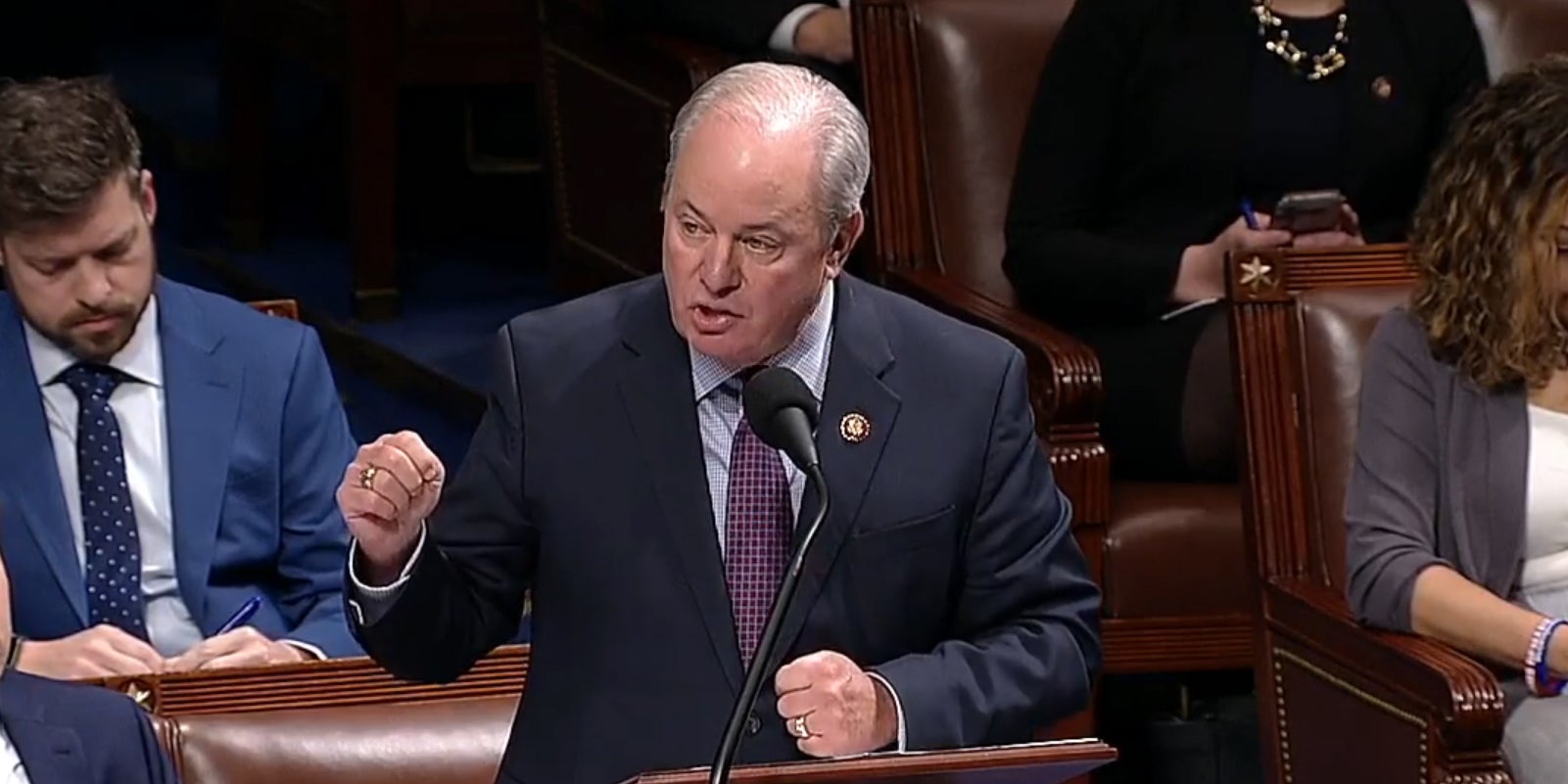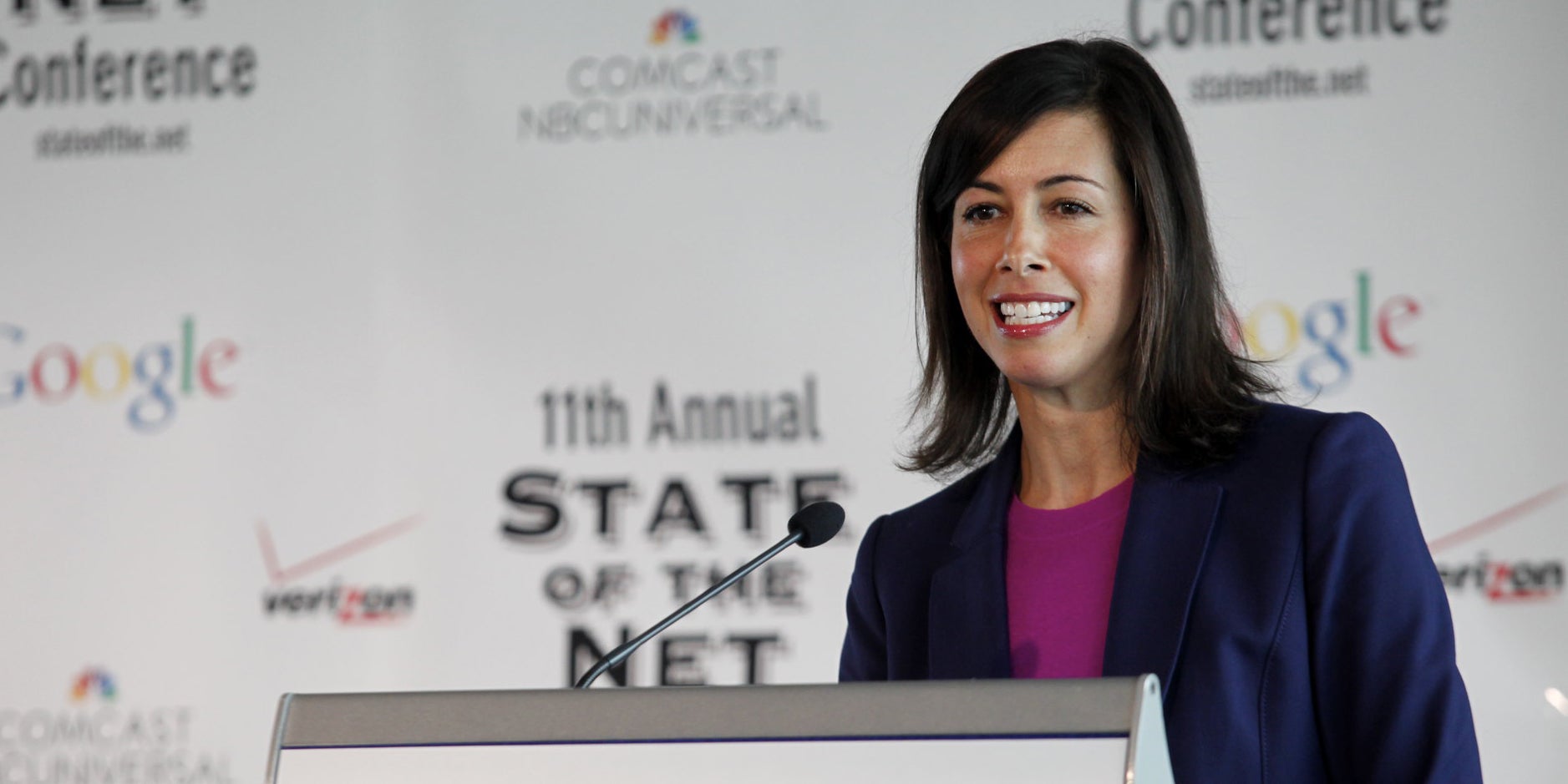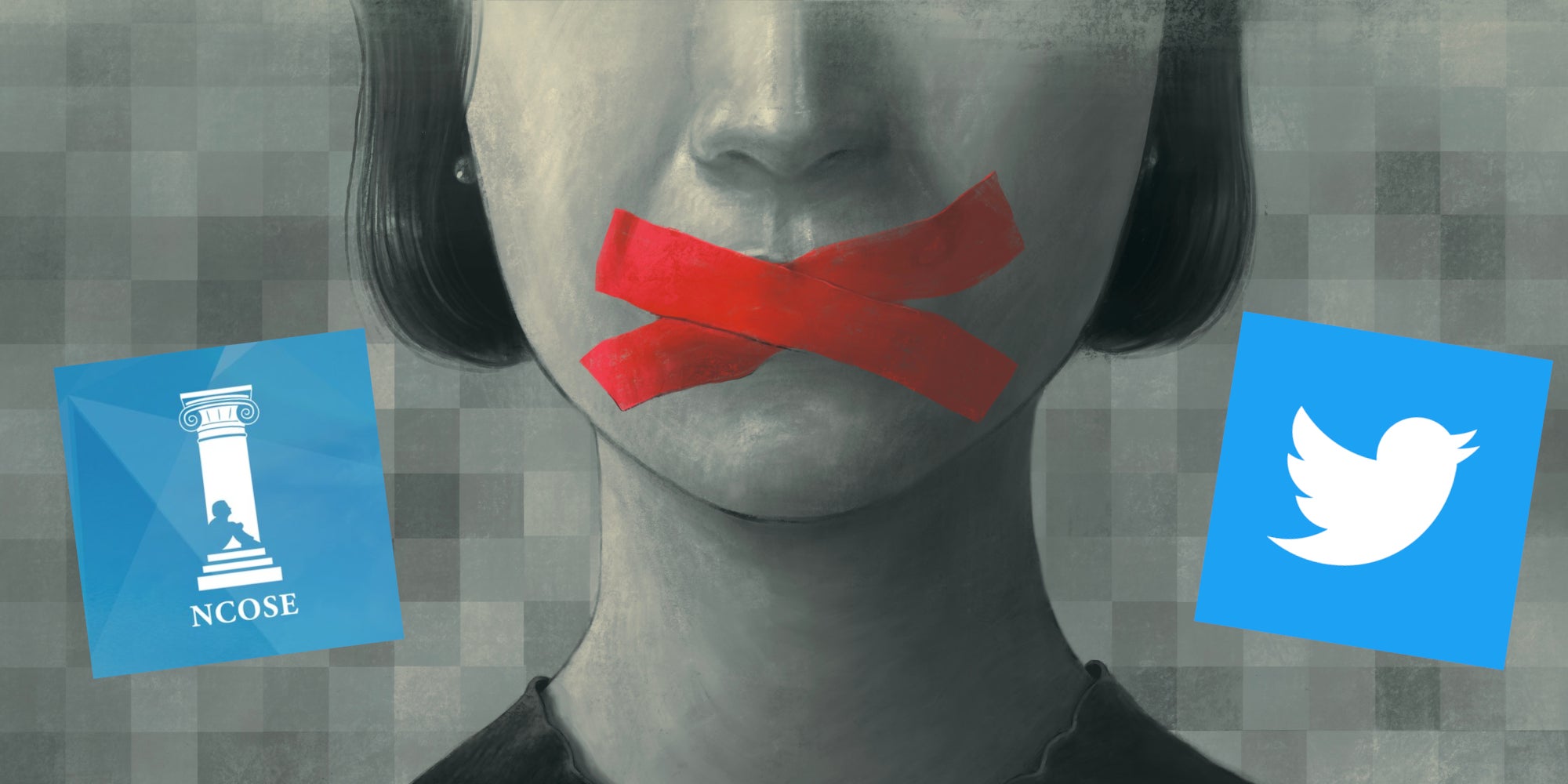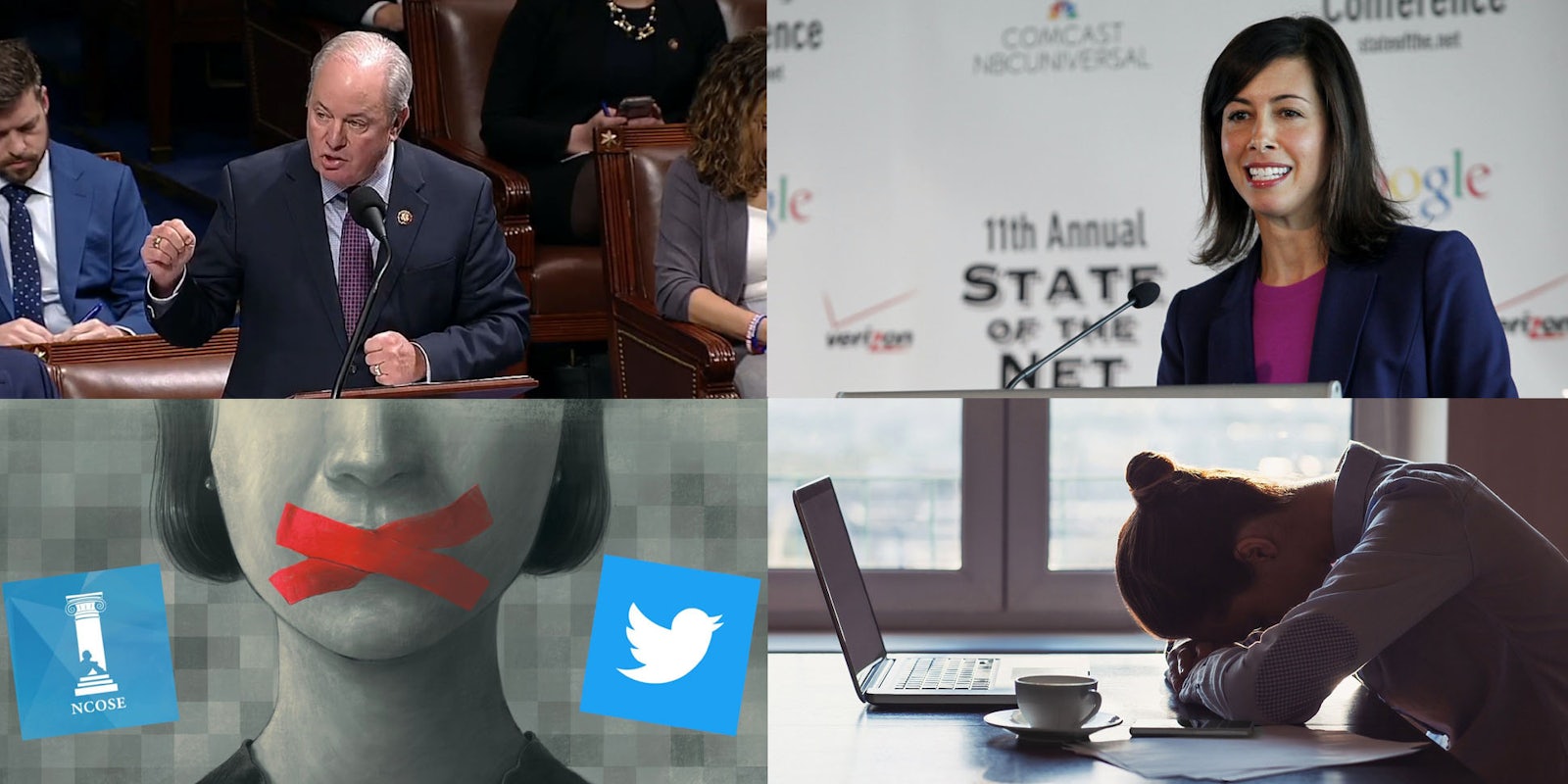Sign up to receive the best of the internet straight to your inbox.
With the Biden administration ramping up, the tech policy space is beginning to take shape—with a net neutrality bill looking like it is very likely.
Here’s what we’ve got on deck today:
- House Democrat ‘definitely’ plans on reintroducing net neutrality legislation
- Jessica Rosenworcel named acting chairwoman of FCC
- Twitter’s adult content problem

BREAK THE INTERNET
House Democrat ‘definitely’ plans on reintroducing net neutrality legislation
Rep. Mike Doyle (D-Penn.), a Democrat in the House of Representatives who championed a bill that would restore net neutrality, “definitely” intends on reintroducing legislation to restore the rules, his office told the Daily Dot.
While it remains to be seen exactly how the bill will take shape, Doyle, a member of the House Energy and Commerce Committee and chairman of the communications and technology subcommittee, has a history of championing net neutrality. In 2019, he pushed the Save the Internet Act in the House of Representatives.
While the bill passed the House of Representatives, the Senate version of the Save the Internet Act languished in the upper chamber. Several attempts by Democrats to force a vote on the bill were blocked by Republicans.
With the next Congress officially underway, the congressman plans on continuing a push for net neutrality restoration, his office said.
Net neutrality is the principle that all internet traffic be treated equally by internet service providers (ISPs). That means an ISP, under net neutrality rules, is not able to block, throttle, or offer paid prioritization of internet traffic. Other net neutrality rules—like the ones California passed—go further by blocking zero rating, which is when ISPs decide certain services or content won’t count against a customer’s data cap.
“Congressman Doyle definitely intends to reintroduce legislation to restore net neutrality,” the congressman’s office told the Daily Dot in a statement. “Broadband access is more important than ever, and consumers need these protections—and a cop on the beat—now more than ever.”
A member of the congressman’s staff said as the committee is still getting organized, the timing for everything is still up in the air, but net neutrality remains a high priority.
While the Save the Internet Act previously faced opposition in the Senate, a potential new net neutrality bill has a much clearer path in the wake of Democrats taking control of the Senate following the Georgia Senate runoff elections earlier this month. While the path isn’t without obstacles, a net neutrality bill does have a more defined path than it did previously.
It has been widely speculated that Biden winning the 2020 election meant that net neutrality would come back in some form, but now it looks like at least part of the fight to restore the rules will unfold in Congress.
—Andrew Wyrich, deputy tech editor

SPONSORED
Yeah, we’re all tired of wearing masks––but you may as well look at the positives. One of them is that allergy sufferers will be much better off this year thanks to them. They block allergen particles just as well as they do the coronavirus. But cloth masks aren’t the best pick for this, and we’ll tell you why.

FCC
Jessica Rosenworcel named acting chairwoman of FCC
Jessica Rosenworcel, a Democratic commissioner at the Federal Communications Commission (FCC), has been named the acting chairwoman of the agency by President Joe Biden.
Rosenworcel takes over as the acting head of the agency after former Chairman Aji Pai stepped down on Wednesday before Biden’s inauguration. Rosenworcel has long been seen as a top choice for Biden to head the agency.
“I am honored to be designated as the Acting Chairwoman of the Federal Communications Commission by President Biden,” Rosenworcel said in a statement released by the agency. “I thank the president for the opportunity to lead an agency with such a vital mission and talented staff. It is a privilege to serve the American people and work on their behalf to expand the reach of communications opportunity in the digital age.”
Here’s why it matters: Rosenworcel has been vocal in her support of net neutrality and has opposed the FCC’s controversial repeal. She has also endorsed congressional efforts to restore net neutrality rules—specifically the Save the Internet Act, which would essentially codify the FCC’s 2015 Open Internet Order. It is expected that the Democrat-led FCC will seek to restore net neutrality rules.
Besides net neutrality, Rosenworcel has also been critical about how the FCC has described the breath of the digital divide, the gap between those who have and can afford high speed internet and those who cannot, in the country. In April last year she said the FCC’s annual broadband report “wildly understates the extent” of the digital divide in the U.S.
—A.W.

OVERLORDS
Twitter’s adult content problem
An anti-porn organization with religious ties has filed a lawsuit against Twitter alleging the social media website benefited “from a sex trafficking venture.” The lawsuit utilizes SESTA-FOSTA’s Section 230 exceptions and could theoretically force Twitter to purge sex workers and adult content creators, adult industry experts warn.
The National Center on Sexual Exploitation (NCOSE) filed the federal lawsuit, along with two law firms, the Haba Law Firm and the Matiasic Firm, against Twitter on Wednesday.
The lawsuit was filed on behalf of an anonymous minor who alleges Twitter knowingly refused to pull sexually explicit images of him posted on the platform without consent. The images were originally catfished from him by strangers on Snapchat who pretended to be his age, adult industry news site XBIZ reports.
NCOSE’s lawsuit relies on SESTA-FOSTA, the anti-sex trafficking law that led to the widespread deplatforming of sex workers across websites such as Reddit and Craigslist. SESTA-FOSTA ended internet services’ immunity for civil action lawsuits arising from sex trafficking.
XBIZ notes that NCOSE is “the oldest and most powerful of the lobbies currently attempting to ban all sexual expression online” and that the “pro-censorship group was founded by clergymen in 1962.” NCOSE has previously targeted queer adult video games on Steam and copies of Cosmopolitan in Walmart.
Here’s why it matters: Even if NCOSE’s lawsuit does not pressure Twitter to ban adult material, other attacks on Section 230 protections could deplatform sex workers and adult content creators in the near future, such as Congress’ Stop Internet Sexual Exploitation Act. While SISEA died in committee at the end of the 117th Congress, Sen. Jeff Merkley (D-Ore.), the bill’s co-sponsor, has expressed interest in reintroducing SISEA later this year.
—Ana Valens, staff writer
BEHIND THE SEAMS
Behind the Seams looks into the phenomenon of the Disney Princess Dress: an outfit that combines 1950s silhouettes with elements of 18th and 19th-century European ball gowns. We delve into the historical influences of movies like Snow White and The Princess and the Frog, along with insight into how Disney transformed cartoon princesses into a cohesive, Avengers-style lineup.
BTW
- Internet pranksters are trying to hold URLs for 2024 candidates hostage
- Dominion files defamation lawsuit against Rudy Giuliani, seeks $1.3 billion
- How the pandemic is placing undue burdens on entry-level employees
- Judge rules that Amazon doesn’t need to reinstate Parler hosting
- Senator who is now 3rd in line to presidency has appeared in 5 Batman movies


